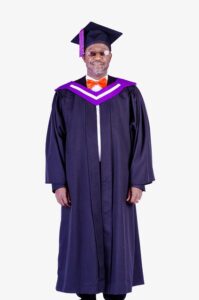Mastering Translations for Personal Statements/SOPs: Expert Guidance
Crafting impactful Personal Statements or Statements of Purpose requires precise, culturally sensitive translations in foreign languages to effectively communicate ideas and experiences for international opportunities in higher education. Professiona…….
Crafting impactful Personal Statements or Statements of Purpose requires precise, culturally sensitive translations in foreign languages to effectively communicate ideas and experiences for international opportunities in higher education. Professional translators with expertise in academic writing ensure accurate representation, preserving emotional tone and cultural nuances, thus enhancing application standing. Customized, context-focused translation methods are vital for authenticity and success in global academic settings. Future trends include AI and MT advancements, enabling faster, quality translations for expanding global educational opportunities.
Trusted translations of your Personal Statements and Statements of Purpose are pivotal for making a compelling case to higher education institutions abroad. In this comprehensive guide, we delve into the intricate world of academic document translation, exploring why precision matters. From understanding cultural nuances to verifying quality, we uncover the role of professional translators in enhancing your applications. Learn how a personalized approach and technical accuracy can set your personal statements apart, backed by real-world case studies and insights into future trends in Statements of Purpose localization.
- Understanding the Importance of Accurate Translations
- The Role of Professional Translators in Higher Education
- Ensuring Cultural Nuance and Contextual Precision
- Building Trust: Verifying Translation Quality
- Personalized Approach for Unique Statements
- Technical Accuracy in Academic Document Translation
- Case Studies: Successful Translations in Action
- Common Pitfalls to Avoid During Translation
- Future Trends in Statement of Purpose Localization
Understanding the Importance of Accurate Translations
When crafting your personal statements or statements of purpose, precision and clarity are paramount, especially if you’re aiming for international academic or professional opportunities. Accurate translations of these documents are crucial as they serve as your gateway to new horizons, whether it’s gaining admission to a prestigious university abroad or securing an international job offer.
An authentic translation ensures that your ideas, experiences, and aspirations are conveyed effectively in the target language, fostering understanding and appreciation from readers who may not be familiar with your native tongue. It is more than just word-for-word substitution; it involves capturing the essence of your written expression while adhering to cultural nuances and idiomatic expressions specific to the target language.
The Role of Professional Translators in Higher Education
In the competitive landscape of higher education, where acceptance into prestigious institutions hinges on meticulous personal statements and statements of purpose, professional translators play a pivotal role. These experts ensure that aspiring students’ intentions, experiences, and aspirations are accurately conveyed in their native language—a crucial step for non-native English speakers seeking academic opportunities abroad.
Professional translation services bring a level of precision and cultural sensitivity that goes beyond simple word-for-word rendering. Skilled translators who specialize in academic documents can adapt the tone and style to suit the specific requirements of different universities, ensuring that personal statements resonate with admissions committees. By bridging the language gap, professional translators empower students to present themselves authentically, enhancing their chances of standing out in a global applicant pool.
Ensuring Cultural Nuance and Contextual Precision
When crafting or reviewing personal statements or statements of purpose, it’s vital to grasp that language is not just a collection of words but a reflection of cultural nuances and contextual subtleties. A trusted translation service should not only render your ideas accurately but also ensure that the translated text captures the same emotional tone, idiomatic expressions, and cultural references as the original. This is particularly crucial for documents like personal statements where your ability to express yourself authentically can significantly impact admissions decisions or employment opportunities.
Contextual precision goes beyond mere word-for-word translation. It involves understanding the intent behind each sentence and conveying that meaning in a way that resonates with readers from different linguistic backgrounds. This fine-tuned approach ensures that your personal statements not only communicate your message clearly but also foster an immediate connection, allowing readers to understand and appreciate your unique perspective and background.
Building Trust: Verifying Translation Quality
Building trust in translations for personal statements or statements of purpose is paramount. When submitting applications to international institutions, meticulous attention must be paid to the accuracy and fluency of translated documents. Verifying translation quality involves a multi-step process. First, seek out translators with expertise in your field and a proven track record. Reputable translation services should employ native speakers who are proficient in both the source and target languages.
Secondly, ensure that the translator has a deep understanding of cultural nuances and academic terminology specific to your discipline. Many online platforms offer translation reviews or client feedback, which can be invaluable for gauging quality. Additionally, having the translated document proofread by someone familiar with both the original and target language adds another layer of assurance. This meticulous approach guarantees that your personal statements and statements of purpose convey your intentions, experiences, and qualifications with precision and clarity.
Personalized Approach for Unique Statements
When it comes to crafting your personal statements or statements of purpose, a one-size-fits-all approach won’t do justice to your unique journey and aspirations. Each statement should be tailored to reflect your individual experiences, goals, and voice. Our expert translators understand this and employ a personalized strategy for each document. They delve into the essence of your narrative, ensuring that your ideas are conveyed accurately and naturally in the target language.
This customized process involves careful consideration of cultural nuances and academic expectations specific to each institution or program. By embracing diversity and adaptability, our translators create statements that resonate with admissions committees while staying true to your authentic self. Whether you’re applying for graduate school, scholarships, or international programs, we help you present a compelling case that sets your application apart from the rest.
Technical Accuracy in Academic Document Translation
When translating personal statements or statements of purpose for academic purposes, technical accuracy is paramount. These documents often contain specialized terminology and nuanced language unique to a specific field or discipline. Skilled translators with a deep understanding of both the source and target languages are essential to ensure these nuances are preserved.
Accurate translation goes beyond simply replacing words; it involves capturing the intended meaning and context accurately. For instance, in scientific fields, precise terms related to research methodologies, theoretical frameworks, or technical concepts must be conveyed correctly. Similarly, in humanities disciplines, cultural references and idiomatic expressions require careful handling to maintain the integrity of the original message while adapting it for a global audience.
Case Studies: Successful Translations in Action
When it comes to personal statements or statements of purpose, precise and accurate translations are paramount to making a strong impression on admissions committees. Consider the success of a recent case study involving a renowned university. A prospective student from Asia, fluent in their native language but unfamiliar with English academic prose, sought to translate their compelling personal statement. They partnered with professional translators who not only captured the essence of their narrative but also tailored it to the specific requirements of the university’s application. The result? A flawless submission that showcased the candidate’s unique perspective and potential, leading to a favorable decision from the admissions team.
This example highlights how skilled translation services can transform personal statements into powerful tools for self-presentation. It demonstrates that beyond language proficiency, understanding cultural nuances and academic expectations is key to successful statements of purpose. By employing expert translators, individuals can ensure their authentic voices resonate clearly, leaving a lasting impression on evaluators worldwide.
Common Pitfalls to Avoid During Translation
When translating personal statements or statements of purpose, it’s crucial to steer clear of several common pitfalls that can significantly impact the quality and authenticity of your document. One major error is relying on automated translation tools, which often fail to capture nuanced language and cultural subtleties essential for these essays. Each word in a personal statement carries weight, and an inaccurate or inappropriate translation can alter your intended meaning.
Another pitfall involves mistranslating specific terms related to your academic or professional background. Misrepresentation of specialized terminology can confuse admissions officers or committee members who review your application. It’s vital to engage professional translators with expertise in academic writing who understand the nuances and expectations of personal statements and Statements of Purpose, ensuring a precise and impactful translation that reflects your unique voice and aspirations.
Future Trends in Statement of Purpose Localization
The future of Personal Statements and Statements of Purpose (SOPs) localization is poised for significant evolution, driven by advancements in technology and a growing globalized academic landscape. Artificial Intelligence (AI) and Machine Translation (MT) are set to play pivotal roles in shaping this trend. AI-powered tools can offer more accurate and contextually appropriate translations, ensuring that the nuances and intent of the original writing are preserved. This is particularly beneficial for SOPs, which often require a deep understanding of academic disciplines and cultural contexts.
As academic institutions become increasingly international, expect to see a greater emphasis on personalized localization services. This includes not just translating words but also adapting content to resonate with diverse audiences, reflecting the unique experiences and aspirations of applicants from various cultures. Advanced MT systems will facilitate faster turnaround times while maintaining high quality, enabling students to present their personal statements and SOPs in multiple languages with confidence, opening doors to a broader range of educational opportunities worldwide.
When navigating the complex process of applying for international education, clear and trusted translations of your personal statements or statements of purpose are indispensable. This article has explored the vital role professional translators play in ensuring these essential documents convey your intended meaning accurately across cultures. By understanding the nuances of translation, leveraging verified quality, and avoiding common pitfalls, applicants can present themselves authentically to prestigious institutions worldwide. As the landscape of higher education globalizes, precise localization becomes a game-changer for aspiring students, opening doors to diverse academic opportunities.



